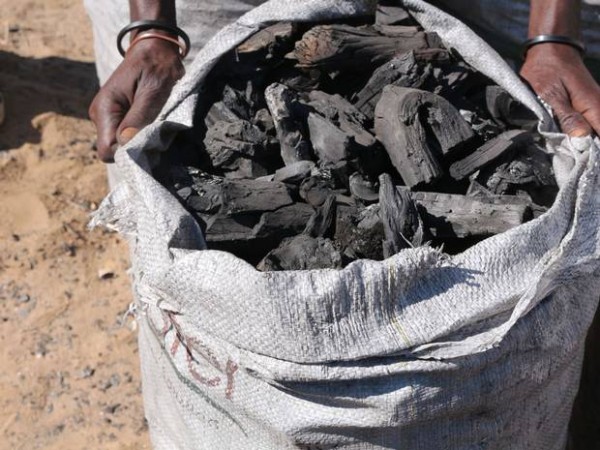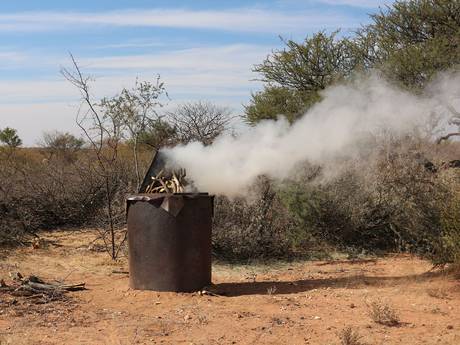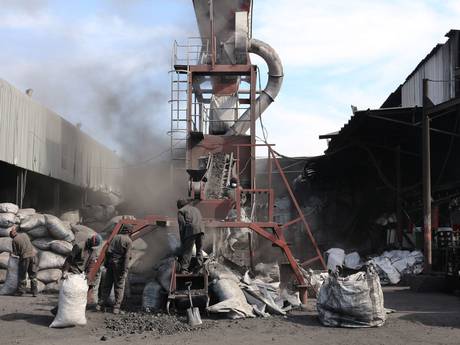PBS: Escaping Eritrea … [Read More...] about ካብ ውሽጢ ቤት ማእሰርታት ኤርትራ
How Namibian charcoal workers pay a high price for the cheap British barbecue
TOM BAWDEN, Sunday 09 August 2015, THE INDEPENDENT (UK)
Britain moves into peak barbecue season this weekend, and the smell of slightly charred burgers, ribs, halloumi and salmon will fill the nation’s gardens, parks and balconies. But many households will be oblivious to the fact that much of the charcoal being used to fire up the grill is produced in Namibia under miserable conditions, a leading forest charity has warned.

The popularity of barbecues has soared in recent years, fuelled by a growing appetite for smoky favourites such as pulled pork and ribs. The UK is now the barbecue capital of Europe, the setting for about 120 million outdoor cooking sessions a year. But Fern, an NGO that represents forests and the people who live and work in them, wants Britons to think carefully about the charcoal that fuels almost half of barbecues.
It has conducted an investigation into the UK’s primary source of barbecue fuel – the Namibian charcoal industry – and discovered that pay, working conditions and environmental considerations are sadly lacking across large swaths of the southern African country.
On a visit to one of the country’s charcoal heartlands, Fern found a landscape populated by thickets of the thorny, twisted “invader” bushes used to make charcoal. The Outjo region, about 250km north of the capital Windhoek, is dotted with rusty steel drums used to make charcoal by burning the bush. Lining the edges of the roads are makeshift dwellings of black plastic sheeting and bits of wood, homes for the charcoal burners.
The Fern investigation found evidence of trees being illegally harvested on a vast scale, with workers typically paid a pittance and living without access to toilets or running water. Many workers are given little or no protective clothing, according to the report, Playing with Fire: Human misery, environmental destruction and summer BBQs.
The work is punishing: trees are chopped down, sawn into small pieces and left in the makeshift kilns for a few days. “Although it is tough, we have no other choice. There is no other alternative,” one worker told the researcher who compiled the Fern report.
Britain imports more than 80 per cent of the 60,000 tonnes of charcoal it burns each year, and Namibia is by far the biggest source. Supermarkets and major retail chains only sell charcoal certified by the Forest Stewardship Council (FSC) – a process that requires social and environmental inspections. But much of the UK’s barbecue fuel is sold through smaller, independent outlets, many of which stock little or no FSC-certified product, experts say.

The wholesale price of charcoal produced in the UK is about £1,400 a tonne, compared with just £76 a tonne in Namibia, making it much cheaper for retailers to buy, even after the cost of transport. The UK imports more of Namibia’s charcoal than any other country, with some estimates suggesting it accounts for half of the total burnt, according to Fern campaign co-ordinator Saskia Ozinga.
“Yet consumers are oblivious to the conditions it’s produced under, with the widespread illegal harvesting of trees, and many workers living in the sort of atrocious conditions we’re more used to seeing on our TV screens beamed in from a makeshift refugee camp in a disaster zone,” she said. FSC-certification goes some way to addressing the problems of worker exploitation in Namibia, but charcoal produced under extremely harsh circumstances is still widely used in the UK.
“Whatever guarantees of sustainability FSC does give, it’s undermined by the large amount of non-FSC charcoal entering the EU, including the UK,” Ms Ozinga said. She pointed out that only 8 per cent of charcoal producers in Namibia were FSC-certified, meaning there was nowhere near enough of it to meet demand.
“Major supermarkets require that their charcoal is FSC-certified. Many other retailers and restaurants do not. They should be made aware of the human and environmental cost of what they are selling,” she added.
Jim Bettle at one of the UK producers, the Dorset Charcoal Company, is also concerned about the prevalence of non-certified product in the UK market. “It is only relatively recently that certain retailers have been stocking FSC charcoal but it is far from the norm,” he said. “Any inspection of imported charcoal bags on garage forecourts is unlikely to find the FSC logo.”
The Namibian Forestry Department could not be reached for comment. However, the Namibian government is known to be concerned about conditions in the charcoal industry. Last year the Deputy Minister of Labour and Social Welfare, Alpheus Muheua, told the Namibian Sun that charcoal workers continued to toil under horrible conditions, being paid starvation wages and not being recognised as employees. He said he was working on an agreement to address the issues as part of a process that began in 2003, when his ministry began to investigate the issue.
Campaigners say overhauling the Namibian charcoal industry is a huge task. However, Fern says one simple change could make a huge difference. At the moment, EU Timber Regulation (EUTR) requires that all timber and most timber products sold in Europe must be legally and sustainably sourced. But charcoal is not included. Tweaking the law to make it a criminal offence to import illegally sourced charcoal from Namibia would be a great start, Fern said.
How to hold an ethical BBQ
When it comes to barbecue charcoal there is one step – and one step only – that consumers can take to be ethical: buy fuel that has been certified by the Forest Stewardship Council (FSC), an NGO charged with ensuring woodlands are managed sustainably and which assesses working conditions and environmental concerns.

Inevitably, there have been complaints that the FSC’s oversight isn’t as rigorous as it could be, but even critics overwhelmingly agree that it is far better to buy charcoal which has the FSC logo on its packaging than the, typically cheaper, product without it.
Supermarkets and the major retailers sell only FSC products – but the smaller retailers are much less rigorous, so consumers should scour the packaging to see if the FSC logo is there. If it isn’t, you shouldn’t buy it and you should tell the shopkeeper why you’re going elsewhere.
